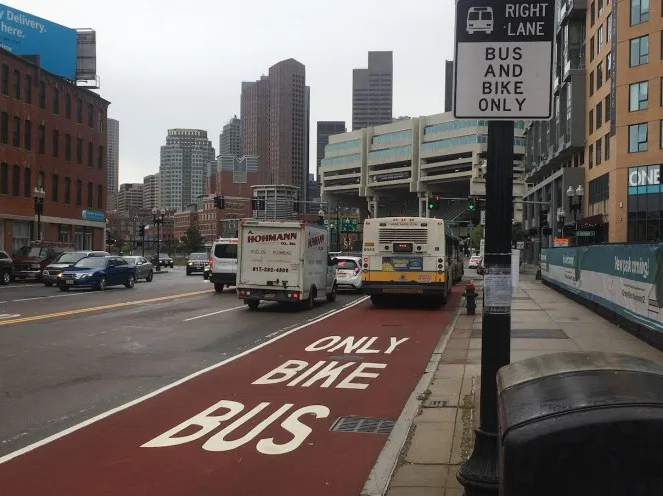While much of the nation is staying at home to minimize the risks of COVID-19 transmission, the “essential” workers who continue to deliver our basic needs are still commuting to their jobs.
That activity puts those workers – along with their families and neighbors – at an elevated risk of contracting the virus. And those workers are more likely to live in the Boston region’s neighborhoods of color, according to an analysis by the ACLU of Massachusetts.
The ACLU analyzed American Community Survey occupational data to find that workers in a broad array of “essential” fields – health care, transportation, construction and others – are relatively more likely to live in East Boston, Roxbury, Dorchester and Mattapan, the neighborhoods with Boston’s highest proportions of non-white residents.
Those same neighborhoods have some of the city’s highest rates of COVID-19 cases:
The density of workers in “essential” occupatons (left map), according to the U.S. Census Bureau, compared to Boston’s COVID-19 infection rate (right) as of April 2. Courtesy of the ACLU of Massachusetts.
Ridership data from the MBTA corroborate the ACLU’s findings. While overall ridership on MBTA bus routes is down significantly, key bus routes serving Dorchester (the 22 and 23), Mattapan (the 28), and Chelsea (the 111) are seeing smaller declines in ridership:
MBTA bus ridership on the agency’s busiest 20 routes, as a proportion of pre-pandemic ridership. View an interactive version of this map at https://observablehq.com/@vigorousnorth/key-mbta-bus-route-ridership-in-the-covid-19-pandemic
Stacy Thompson, Executive Director of the LivableStreets Alliance, says that transportation activists should be more focused on the life-threatening conditions of crowded buses and narrow sidewalks in Mattapan and Chelsea, instead of focusing too much on whether Memorial Drive will be opened for recreational bike rides (disclosure: Thompson also serves on the StreetsblogMASS board of directors).
“If you look at the maps that the city has that identify the worst sidewalks in the city, and the COVID map, and the ’64 Hours’ map (of bus routes most in need of service improvements) – they all highlight the same neighborhoods,” said Thompson in a phone interview on Friday.
“If you’re biggest problem right now is recreation, you’re not starving. You have money. You have a home, you’re not under threat of eviction. You have a job. Opening Memorial Drive doesn’t solve those problems,” said Thompson. “We, as active transportation advocates, get mad at people who drive selfishly – I think it’s important to ask whether I’m acting in a way that could cause harm or take resources away from people who are truly suffering.”
Thompson says that the Action 4 Equity coalition has been working successfully to get more buses added to those routes where essential workers still need access to frequent, reliable bus service.
While the MBTA initially cut bus service to Saturday schedules on most of its bus routes, Joe Petasuro, and MBTA spokesperson, confirmed in an email message last week that additional bus trips have been added on some of these key routes where drivers are identifying more crowded buses.
Thompson credits the agency for being extremely responsive to feedback from its drivers and riders this past month. “The T is not perfect, but they’ve had one of the best responses (to the pandemic) in the country,” she said. “They’ve taken the feedback very seriously – they’ve been a really good collaborator on this.”






